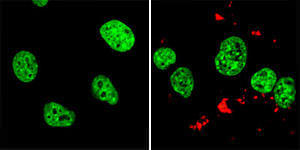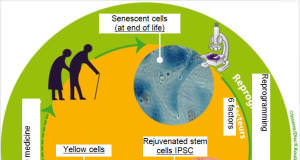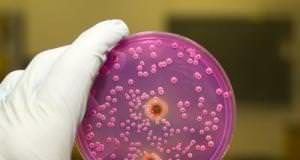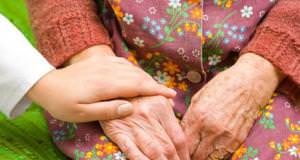Scientists Accurately Predict Age With Saliva Sample
Self-conscious about your age? Careful where you spit. UCLA geneticists now can use saliva to reveal how old you are. The June 22 advance online edition of the Public Library of Science (PLoS) ONE publishes the findings, which offer a myriad of potential applications. A newly patented test based on the research, for example, could offer crime-scene investigators a new forensic tool for pinpointing a suspect's age.
Surprising Culprits Behind Cell Death From Fat And Sugar Overload
Excess nutrients, such as fat and sugar, don't just pack on the pounds but can push some cells in the body over...
Too Much Sitting May Be Bad For Your Health
Lack of physical exercise is often implicated in many disease processes. However, sedentary behavior, or too much sitting, as distinct from too little exercise, potentially could be a new risk factor for disease. The August issue of the American Journal of Preventive Medicine features a collection of articles that addresses many aspects of the problem of sedentary behavior...
Kidney Dopamine Regulates Blood Pressure, Life Span
The neurotransmitter dopamine is best known for its roles in the brain -- in signaling pathways that control movement, motivation, reward, learning and memory. Now, Vanderbilt University Medical Center investigators have demonstrated that dopamine produced outside the brain -- in the kidneys -- is important for renal function, blood pressure regulation and life span.
Possibility of Temporarily Reversing Aging in the Immune System
Researchers have discovered a new mechanism controlling aging in white blood cells. The research, published in the September issue of the Journal of Immunology,...
Switch in Cell’s ‘Power Plant’ Declines With Age, Rejuvenated by Drug
Researchers at the Johns Hopkins University School of Medicine have found a protein normally involved in blood pressure regulation in a surprising place: tucked...
Natural Cellular Antioxidant Declines With Age: Cell’s Reserve Fighting Force Diminished
When the body fights oxidative damage, it calls up a reservist enzyme that protects cells -- but only if those cells are relatively young, a study has found. Biologists at USC discovered major declines in the availability of an enzyme, known as the Lon protease, as human cells grow older.
Erasing Signs of Aging In Human Cells Now A Reality
Scientists have recently succeeded in rejuvenating cells from elderly donors (aged over 100). These old cells were reprogrammed in vitro to induced pluripotent stem cells (iPSC) and to rejuvenated and human embryonic stem cells (hESC): cells of all types can again be differentiated after this genuine "rejuvenation" therapy
Scientists Turn On Fountain Of Youth In Yeast
Collaborations between Johns Hopkins and National Taiwan University researchers have successfully manipulated the life span of common, single-celled yeast organisms by figuring out how to remove and restore protein functions related to yeast aging.
Stand Up: Your Life Could Depend On It
Standing up more often may reduce your chances of dying within three years, even if you are already physically active, a study of more than 200,000 people published in Archives of Internal Medicine shows. The study found that adults who sat 11 or more hours per day had a 40% increased risk of dying in the next three years compared with those who sat for fewer than four hours a day. This was after taking into account their physical activity, weight and health status.
Key Genes That Switch Off With Aging Highlighted As Potential Targets...
Researchers have identified key genes that switch off with aging, highlighting them as potential targets for anti-aging therapies. Researchers at King's College London, in collaboration with the Wellcome Trust Sanger Institute, have identified a group of 'aging' genes that are switched on and off by natural mechanisms called epigenetic factors, influencing the rate of healthy aging and potential longevity.
Regular Jogging Shows Dramatic Increase In Life Expectancy
Undertaking regular jogging increases the life expectancy of men by 6.2 years and women by 5.6 years, reveals the latest data from the Copenhagen City Heart study presented at the EuroPRevent2012 meeting. Reviewing the evidence of whether jogging is healthy or hazardous, Peter Schnohr told delegates that the study's most recent analysis (unpublished) shows that between one and two-and-a-half hours of jogging per week at a "slow or average" pace delivers optimum benefits for longevity.

















